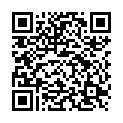|
|
|
| Module code: WIBb21-380 |
|
|
4PA (4 hours per week) |
|
5 |
| Semester: 3 |
| Mandatory course: yes |
Language of instruction:
German |
Assessment:
[updated 18.06.2025]
|
60 class hours (= 45 clock hours) over a 15-week period.
The total student study time is 150 hours (equivalent to 5 ECTS credits).
There are therefore 105 hours available for class preparation and follow-up work and exam preparation.
|
Recommended prerequisites (modules):
None.
|
Recommended as prerequisite for:
|
Module coordinator:
Studienleitung |
Lecturer:
Studienleitung
Professor/innen des Studiengangs
[updated 12.11.2025]
|
Learning outcomes:
After successfully completing this module students will:
• be able to put their theoretical knowledge into practice by solving concrete problems.
• be able to rethink what they have already learned and use it in practice.
• have the ability to develop theories and solutions based on their knowledge.
• have gained well-founded practical experience and can assert themselves in an operational environment.
[updated 18.06.2025]
|
Module content:
Students will tackle issues, that they encounter in current projects in their work experience phase.
The questions arising during the work experience phase must be addressed from both a practical and a scientific perspective and presented in accordance with the specified examination format, either in the form of a project report or a presentation.
Supervisors from the university and companies will provide support in selecting topics and clarifying the central question.
Students will select the topics for their business projects from a range of subject areas presented at the beginning of the semester.
The selection of a follow-up project for the subsequent practical module is permitted.
During the practical phase, the supervising professor serves as the students’ contact person.
After completing the work experience phase, students must write a report of approximately five pages on their practical experience.
Based on the student´s assessment in the work certificate submitted for the work experience phase and the supervising professor´s impression based on their supervision, the supervising professor decides whether to accept or reject the work performed as a work experience phase.
[updated 18.06.2025]
|
Teaching methods/Media:
Project work
[updated 18.06.2025]
|
Recommended or required reading:
• M. Karmasin, R. Ribing: Die Gestaltung wissenschaftlicher Arbeiten: Ein Leitfaden für Seminararbeiten, Bachelor-, Master- und Magisterarbeiten, Diplomarbeiten und Dissertationen 2010
• M. R. Theisen: Wissenschaftliches Arbeiten: Technik, Methodik, Form. 2008
• Subject-related technical literature
[updated 18.06.2025]
|

